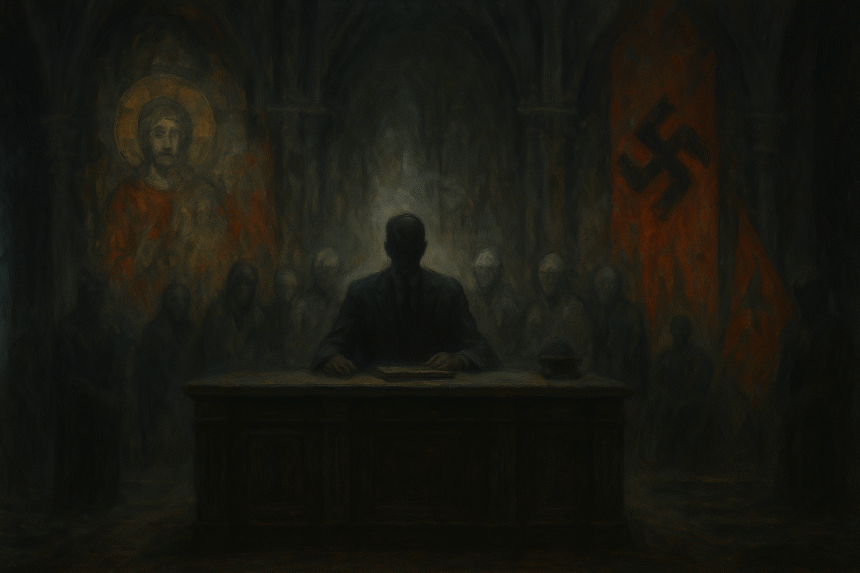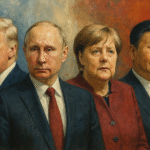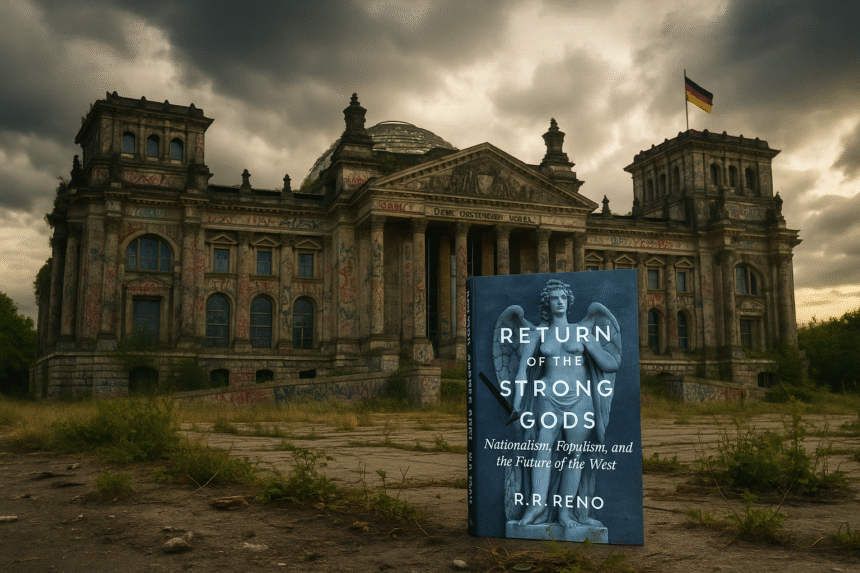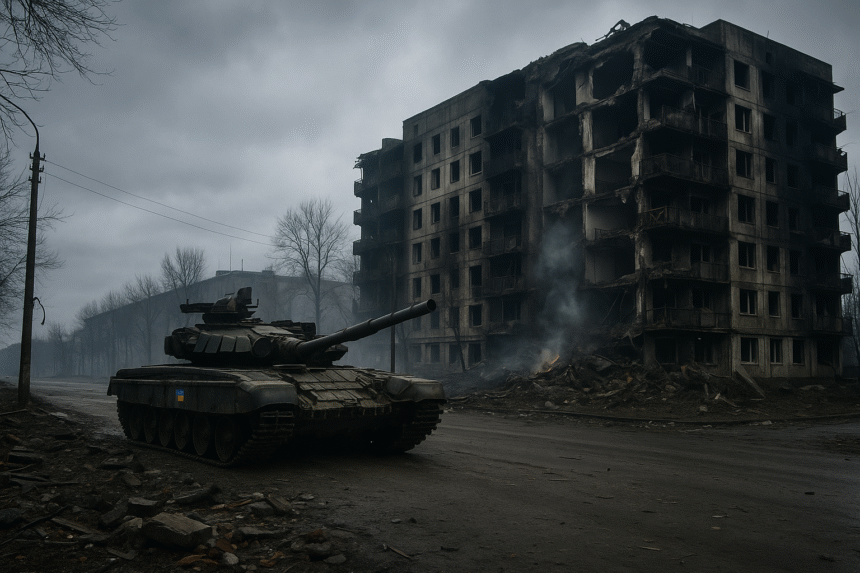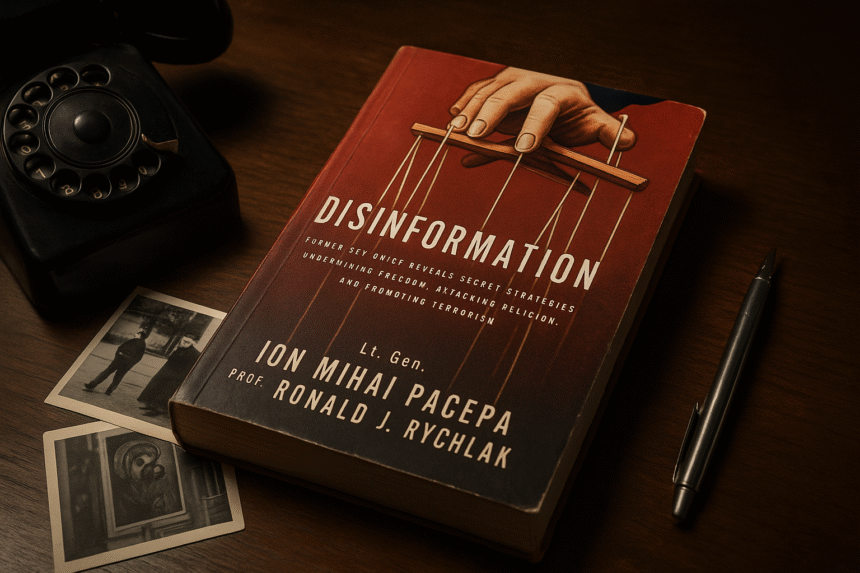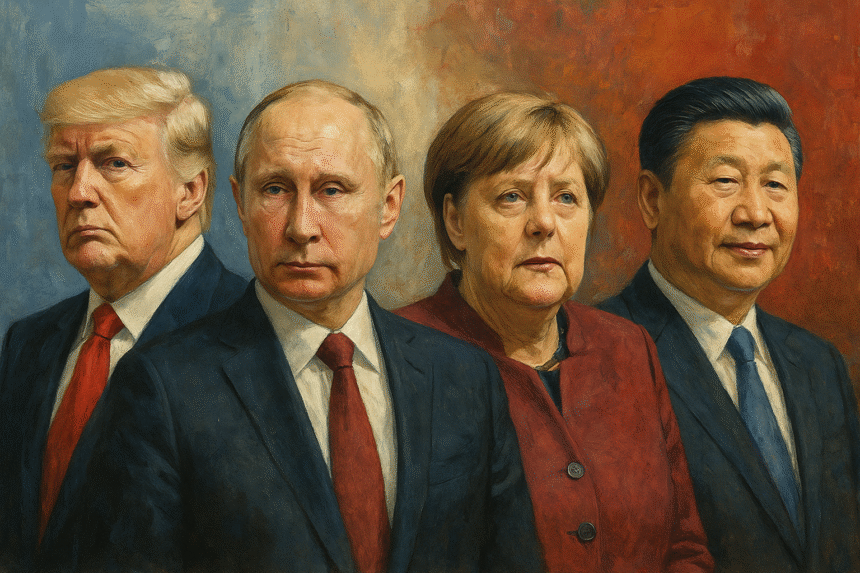The Philosopher Behind the Throne
His books remained forgotten in the West. The Soviet Union banned his ideas. Yet today, Ivan Ilyin—a monarchist exile and Nazi sympathiser—lies buried with state honours in Moscow. Inside the Kremlin, his texts circulate as required reading.
In The Road to Unfreedom, Timothy Snyder exposes how Ilyin’s obscure political theology became the ideological cornerstone of Vladimir Putin’s regime. Ilyin did not simply rationalise authoritarian power; instead, he sanctified it. As a result, modern Russia adopted a doctrinal escape route from democratic accountability and historical responsibility.
This shift is not a revival. It represents an installation. Consequently, its effects extend far beyond Russia’s borders.
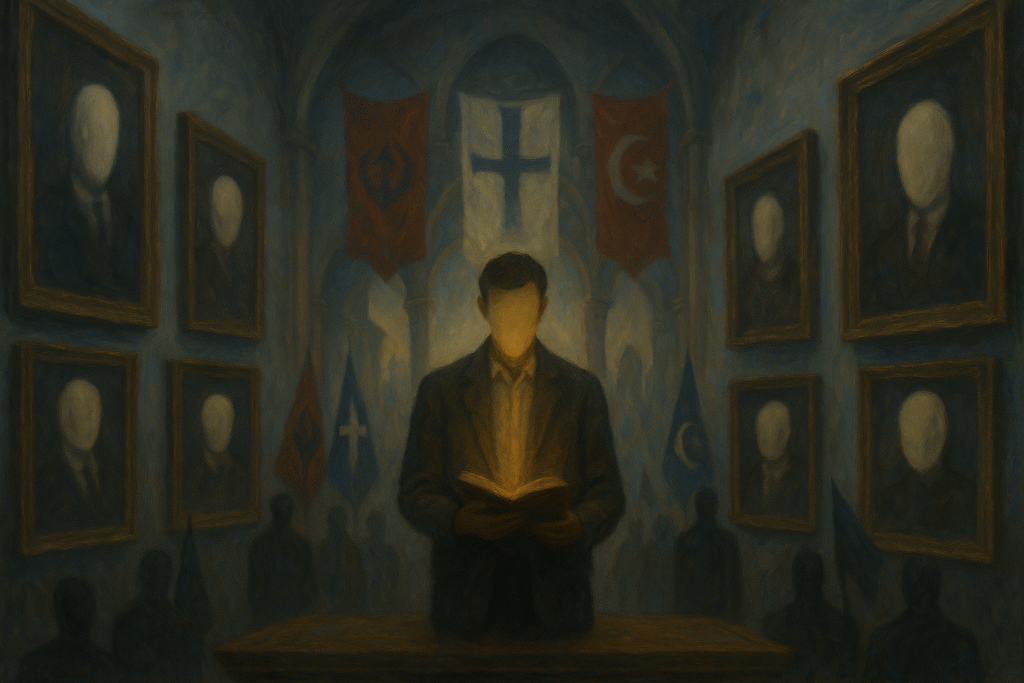
Who Was Ivan Ilyin?
Ivan Alexandrovich Ilyin (1883–1954) fled the Bolsheviks after the Russian Civil War. He settled in Western Europe and cultivated a vision of politics shaped by Hegelian metaphysics and Orthodox mysticism. Eventually, he fused Christian sacrificial logic with authoritarian corporatism and anti-liberal nationalism.
Ilyin asserted that Russia was not a nation governed by institutions but a spiritual organism embodied by a redemptive leader. From his perspective, liberal democracy brought only fragmentation and moral decay.
“Russia is not a state, but a soul.”
Thus, he constructed a political theology that would later become central to the Kremlin’s ideological structure.
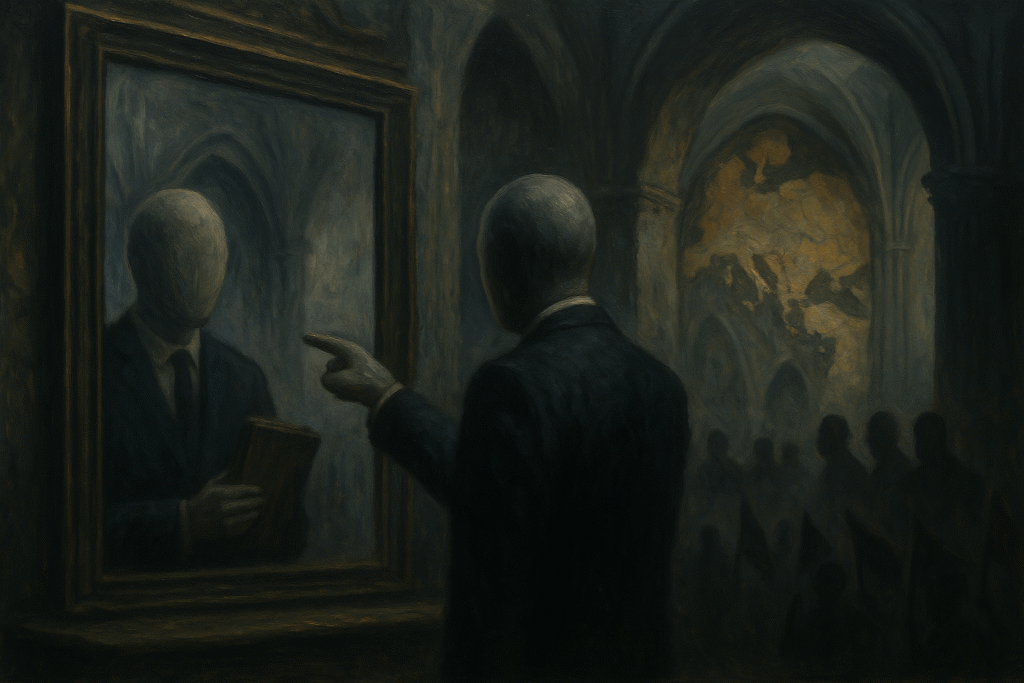
Law Without Process: The Ritual State
Ilyin defined law as a sacred expression of unity, not a system of constraint. In his vision, law should not arise from deliberation or negotiation. Instead, it must reflect the mystical harmony of the people, as interpreted by a leader who channels divine authority.
“The law does not need to be discussed; it needs to be obeyed.”
This perspective has clearly influenced Russia’s legal architecture after 2000. Under Putin, the law became a performative ritual. Courts signal loyalty. Elections confirm unity. Institutions enact spectacle rather than substance.
Unlike Carl Schmitt, who defined sovereignty juridically, Ilyin envisioned the sovereign as a redeemer. Therefore, legality became subordinate to mystical purpose.
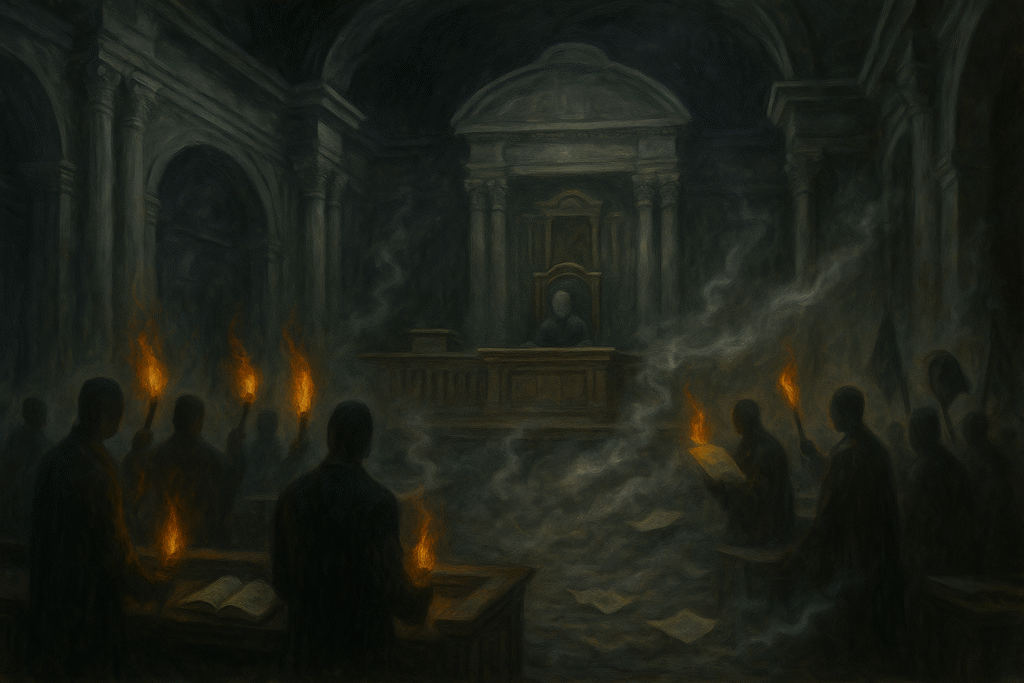
Projection as Innocence: The Eternal Victim
Another pillar of Ilyin’s doctrine was national innocence. He insisted that Russia could never be guilty. According to this view, all crises must originate externally, and every critic becomes a traitor.
As a result, the Kremlin institutionalised a narrative of permanent victimhood. Crimea’s annexation was justified as self-defence. The Donbas invasion followed the same logic. Meanwhile, regardless of the facts, the West routinely appears as an aggressor.
As Peter Pomerantsev documents in This Is Not Propaganda: Adventures in the War Against Reality, Russian disinformation strategy functions through deliberate inversion:
- The state accuses its adversaries of the very actions it conducts itself.
- Narratives of victimhood are weaponised to justify aggression.
- Hybrid war is framed as a moral necessity rather than a strategic design.
This structure is further reinforced by Surkov’s Putin’s Long State, which outlines the ideological basis for narrative warfare and the perpetual management of public perception.
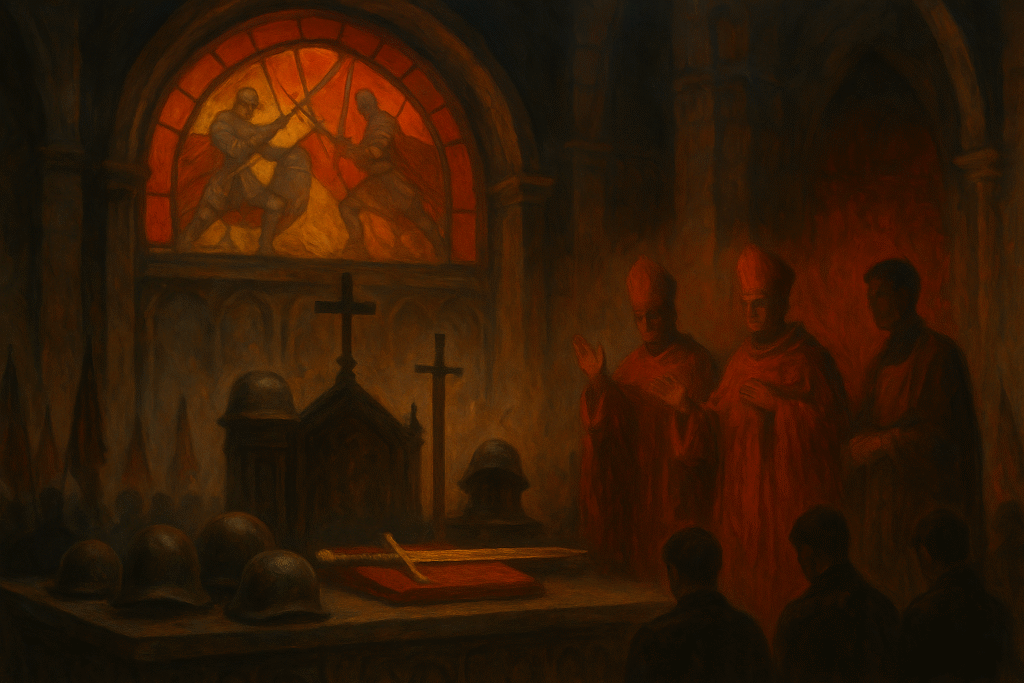
Christianity Without Conscience: The Fascist Cross
Ilyin recast Orthodox Christianity as a tool of state unity. While his version of the faith invoked religious language, it lacked ethics. It emphasised sacrifice, obedience, and tribal loyalty. Because he viewed fascism as a morally valuable tool, he praised both Mussolini and Hitler.
“We must accept the fascist sword, if it is righteous.”
Today, the Kremlin fuses military power with religious authority. Russian state television frames war as purification, and church leaders bless missiles. This ideological convergence did not emerge accidentally; Ilyin’s theology legitimised it.
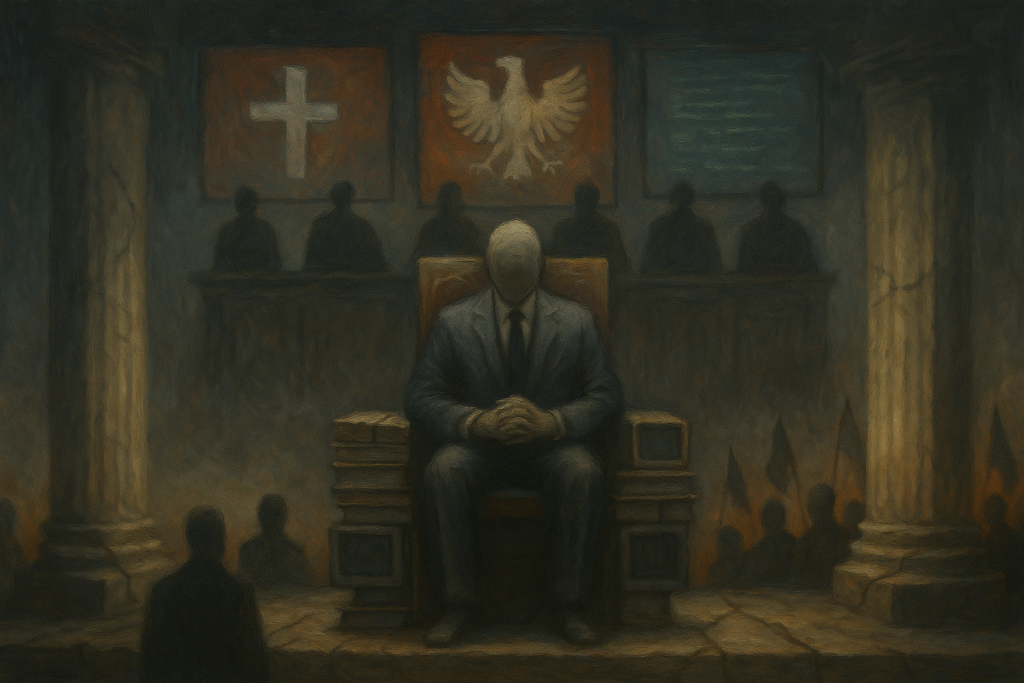
From Theory to Power: Ilyin in the Kremlin
Putin personally ordered Ilyin’s reburial in 2005. Since then, his works have been quoted in presidential speeches. Russian military academies include his writings in their ideological education, and the security services often invoke his vision of spiritual sovereignty.
This intellectual installation provides narrative coherence to eternity politics. Ilyin’s framework justifies disinformation, legal nihilism, and ritualised governance.
In operational terms:
- Presidential will supersedes constitutional norms.
- State media performs liturgy, not journalism.
- Dissent appears as moral heresy.
Ilyin’s worldview fortified the institutional skeleton of Russian authoritarianism.
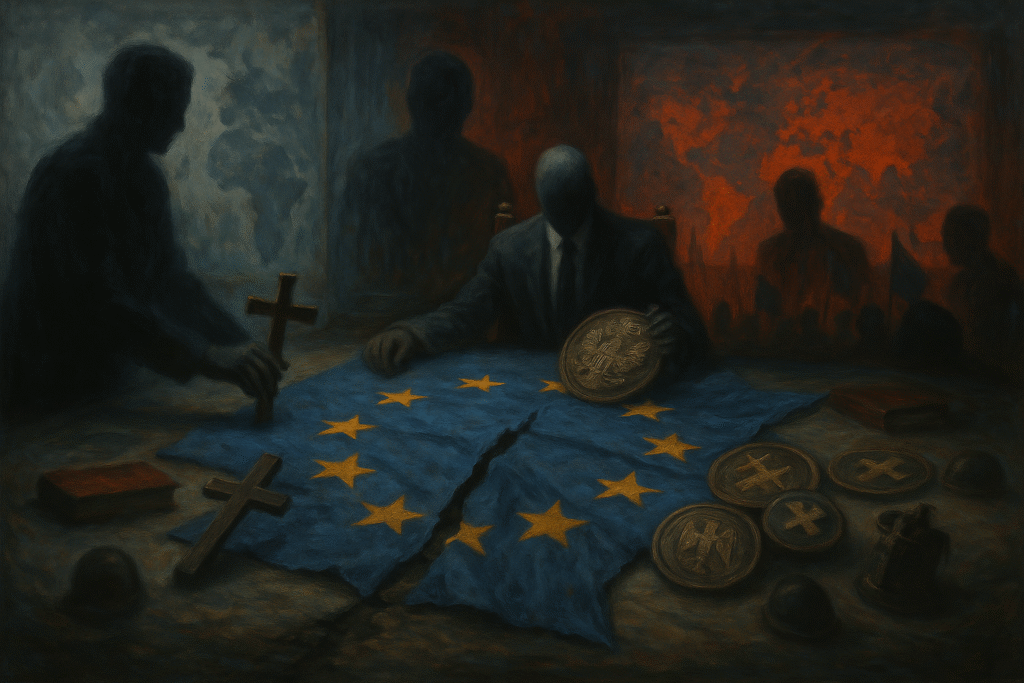
Strategic Implications for Europe
Understanding Ilyin is not an academic exercise. Instead, it is a security imperative. His revival signals a broader return of political theology in hybrid war. Where liberal legalism fails, sacral power re-emerges.
Many European leaders continue to assume that autocracies pursue rational interests. However, regimes guided by theological narratives operate on a different logic. They mobilise myth, not metrics, and sacrifice legality for unity.
Ilyin did not merely influence Russian politics. He supplied the metaphysical code that is now driving Russian strategy.
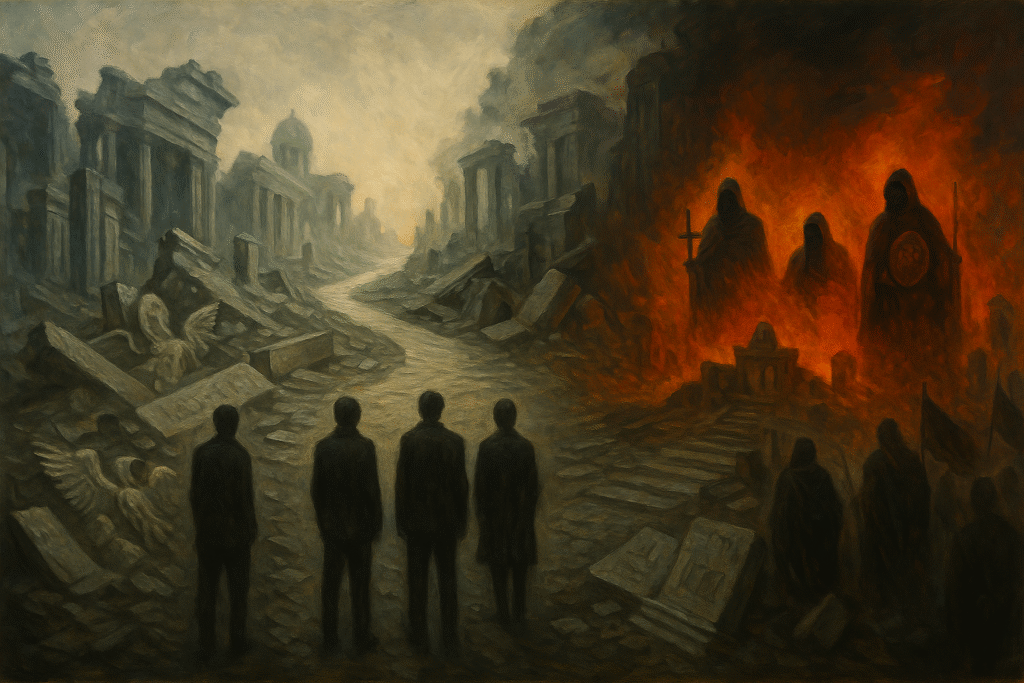
Conclusion
Ilyin’s ideas now form the core of a regime conducting hybrid warfare against the West. His role is not symbolic—it is architectural. He designed a theology of unaccountable power that persists through propaganda, ritual, and war.
The West must stop confusing this for pragmatism. It is theology with missiles.
Break the Doctrine Before It Breaks Us
This is the architecture of modern authoritarianism. We cannot dismantle its mechanisms unless we name its components.
Support Frontline Europa in exposing the doctrines guiding Russia’s war on historical agency.
Name the doctrine. Map the decay. Fund the resistance.
References
- Snyder, Timothy. The Road to Unfreedom: Russia, Europe, America. Tim Duggan Books, 2018.
- Ilyin, Ivan. The Foundations of the Struggle for National Russia. Russian Archive Publications, 1950 (Reissued 2004).
- Ilyin, Ivan. Our Tasks: Essays Toward the National-Conservative Revival. Edited collection, Russian Idea Press.
- Surkov, Vladislav. “Putin’s Long State.” Russia in Global Affairs, February 2019.
- Pomerantsev, Peter. This Is Not Propaganda: Adventures in the War Against Reality. Faber & Faber, 2019.
- Russian Orthodox Church, “On the Blessing of Arms and Service,” in Official Synodal Statements 2000–2020. Moscow Patriarchate Press.
- Umland, Andreas. “The Revival of Political Theology in Russian Authoritarian Thought.” Journal of Political Ideologies, vol. 24, no. 3, 2019.
